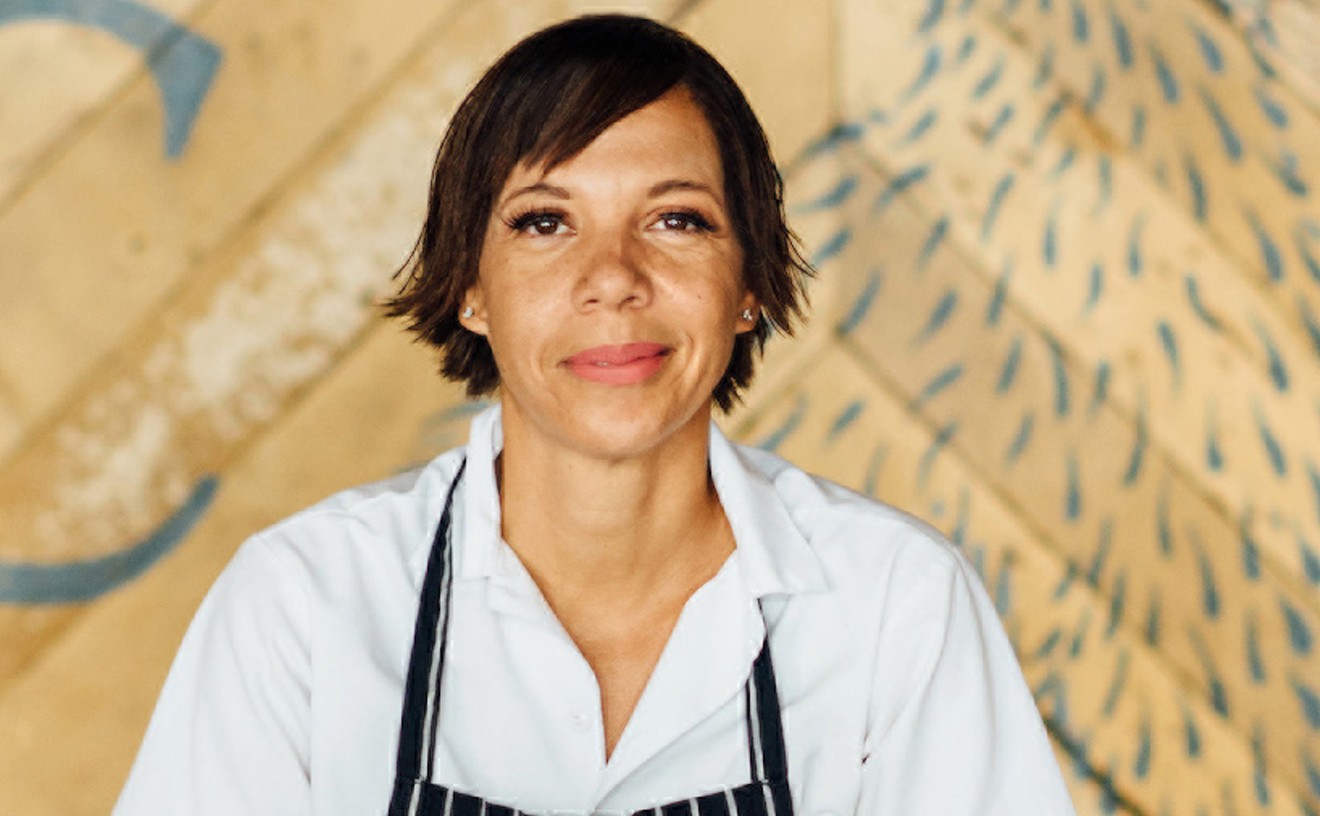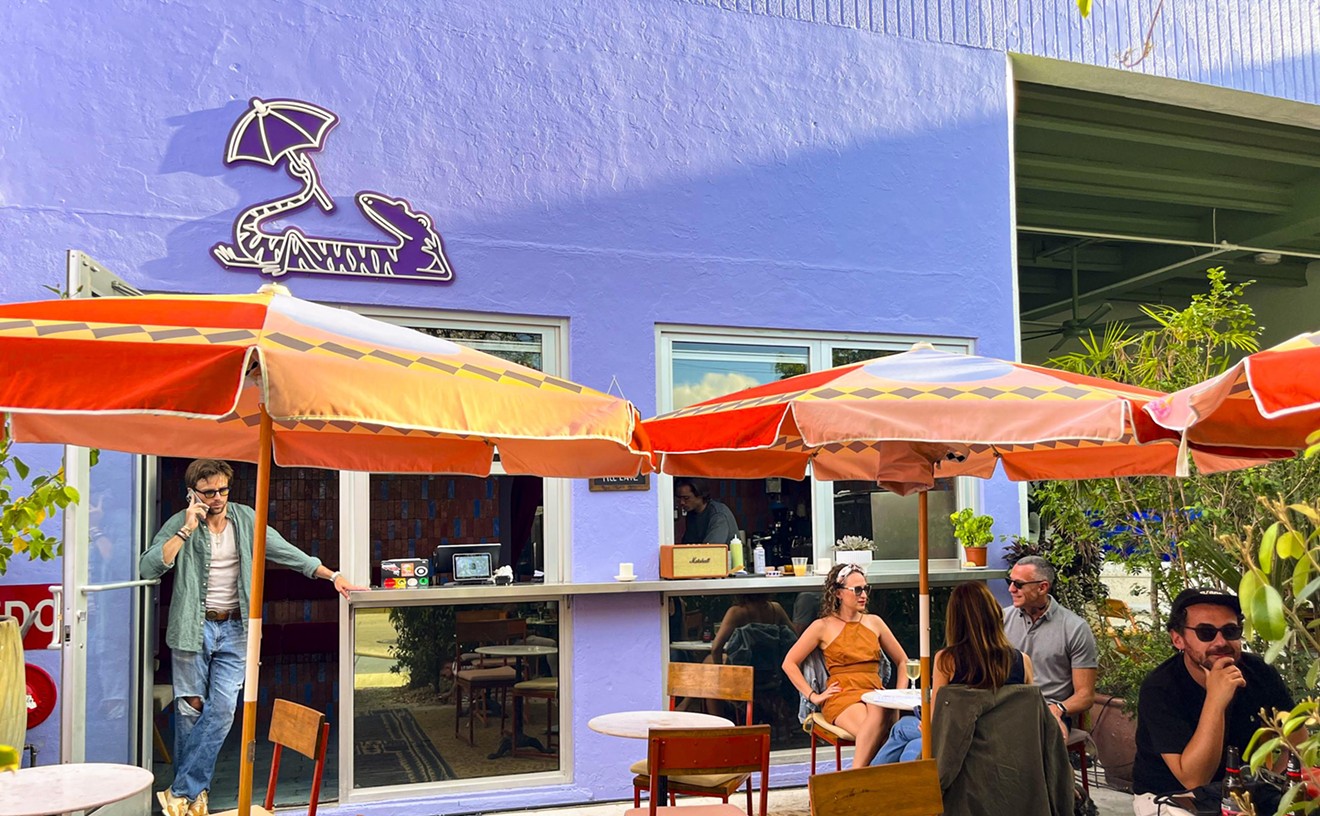One day at Sushi Hana, where the tables are ridiculously close together, I was telling my in-laws an anecdote I'd heard at the office. The man at the next table, a stranger, began glaring at me.
"Where'd you get that information?" he demanded rudely.
I wasn't about to say (I can't even remember what the anecdote was about, it was that important), but it was on the tip of my chopsticks to tell him to keep his nose in his own sushi boat. Thank goodness for mothers-in-law. Mine successfully defused the tension by asking the guy if he was from New York. When he said he was, she proceeded to list all her acquaintances from the area. Nothing like a good game of Jewish Geography to restore everyone's temper to teriyaki sweetness.
On the other hand, I love to eavesdrop.
I get my best information about restaurants by listening to patrons expressing admiration or discontent, or telling where they heard about the place and who they're going to pass the word to. Of course, most of what I hear has nothing at all to do with the eatery, and everything to do with personal lives. I enjoy this part just as much, as it gives me insight into people's characters -- valuable stuff for a writer.
The key to successful eavesdropping, I always thought -- more so than the distance between tables -- is the ability to refrain from interrupting. That's where the Sushi Hana stranger made his mistake, churlishly clueing us in to his interest and ruining any chance of learning more. Even if the tables are set a reasonable distance apart, if you maintain a polite silence you can usually tune in to other conversations and have some theater with your dinner.
That rule, however, doesn't hold at six-week-old Al Amir, a contemporary but plain restaurant on Biscayne Boulevard in North Miami. And no one seemed to mind, including me.
Why no eavesdropping the night I visited? Because the customers were intent on making friends with each other. Leaning back in my black Formica chair with the white vinyl seat, I learned about the German immigration lawyer's five heart bypasses, the Middle Eastern man's penchant for red wine despite his religion's ban on the stuff, and both their wives' workout habits. And if I didn't feel like taking the floor in those conversations, I could chirp to my guests' newborn son (who slept soundly through his first review), talk to the waiter about his two-year-old daughter's craving for anchovies, or chat with chef-owner Ali Husseini about how it feels to finally have a culinary baby of his own after spending 35 years as a kitchen nanny for others.
Verbal entertainment, whether you're creating it or observing it, might just be a necessity here; Husseini's one-chef kitchen is undeniably slow. Still, I'd rather spend hours waiting for his wonderful creations than be quickly served an indifferently prepared meal.
Al Amir opened in the former location of Nastasi's, an Italian restaurant. The door mat says "Sizzler." And the inscription on the window beneath the name reads "Mediterranean restaurant." Ignore all that. Husseini's from Lebanon, and so's his menu. I suppose it's a coincidence that a few columns ago, in a piece about Grazie Cafe -- which also opened in a former Di Napoli location -- I wished the Israeli owner had given some thought to opening a Middle Eastern rather than an Italian restaurant. Thanks to fairy godfather Husseini, who named his restaurant for the popular South Beach Lebanese eatery that had a short run in the early Nineties and where he was chef, wish granted.
And granted, and granted, and granted. Meze, or appetizers, are one of the pleasures of Lebanese cuisine; servings are big enough to pass around the table but not so large that they fill you up -- which is probably why we felt free to order five. Or maybe it was the fact that the menu lists 35 starters, and an equal number of entrees. Though not all the selections are always available, you'd probably do best to leave indecisive dining companions at home.
Pickled turnips and sour cucumbers, along with pita bread, are both gratis beginnings and a pleasant accompaniment to any number of the refreshing cold appetizers. Tabbouleh was particularly masterful, a tangy concoction of chopped parsley, bulgur, tomatoes, onions, and mint. A light sprinkling of lemony olive oil dressing took down the overpowering herbs a notch, rendering them more like soft, fragrant greens. One guest, a University of Florida alum, declared this tabbouleh even better than the stuff at Falafel King, one of Gainesville's requisite student hangouts -- a compliment of the highest order.
The restaurant had run out of a more unusual offering, dandelions sauteed with onions and garlic, but did provide a marvelous (if familiar) baba ghannouj. This eggplant spread, chunky with the charcoaled vegetable, was blended with tahini and lemon juice for a smooth, aromatic presentation. We went through basket after basket of warmed pita bread mopping it up, and also a lovely salatah laban, yogurt spiked with cucumber, cracked pepper, garlic, and mint. Called tzatziki in Greece and cacik in Turkey (two of its more common names), this popular dip was a little bit thinner but no less delicious than the Greek version, in which the yogurt is first strained through a cheesecloth.
Hot starters were lovingly prepared as well. Four kibbeh miklieh -- ground beef and crushed wheat shaped into shells and fried, then stuffed with ground lamb, onions, and pine nuts -- were wonderful, given a slightly fruity taste from the occasional raisin. Falafel was fantastic, possibly the best I've had. Husseini combines minced chickpeas with pureed fava beans for an exceptionally creamy texture. He then deep-fries the four patties to a golden brown and serves them (like the kibbeh) over a shredded lettuce and chopped tomato mattress. These greaseless nuggets were so flavorful they didn't even require the tahini sauce, which came on the side.
Tahini napped a traditional entree of kaftah. Three long "rolls" were formed from ground lamb and beef, spiced with onions and parsley, shaped around skewers, and grilled. Served sans skewer, the slightly chewy results were neither pasty and dry nor jellied and wet, but dwelt nicely in between the two extremes. Shawarma, a well-known marinated meat dish, was also excellent. Shaved tenderloin of beef, rather than the compressed lamb and filler we Americans are too used to, this heap of tidbits was perfect accented by tahini.
One page of the menu is devoted to main courses that are more Continental, ranging from veal scaloppine to steak Diane (called Diana here, though not in honor of the departed princess). Some of the fish -- sea bass topped with tomatoes, cilantro, garlic, and onions, for instance, and grilled or fried whole yellowtail -- sounded interesting but weren't available. We decided on an eponymous chicken dish: dajaj Al Amir, two skinless, boneless breast halves stuffed with a minced mixture of cilantro, onions, and chopped garlic. Pan-frying sealed in the juices, providing the poultry with a crisp exterior and a juicy succulence. A subtle garlic, butter, and white wine sauce completed the delectable chicken, which was enhanced, as are most of the main courses, by simple but ample side dishes: sauteed shredded carrots and snow peas, a scoop of long-grain rice, and a pile of shredded raw white onions garnished with minced parsley.
Stuffed courgettes (zucchini), also called kousa mashi, might sound like a vegetarian meal, but don't be fooled -- they're stuffed with ground lamb and rice. A special tool called a munara cores the squash, which is then filled and braised in a beef or lamb stock. These supple vegetable rolls were at once mellow and vibrant, perked up by mint, garlic, and a host of Lebanese spices -- allspice, cinnamon, cumin, cloves, and cardamom. Grape leaves, cooked with the squash and stuffed similarly, were an unexpected side dish, and were complemented by another side serving of homemade yogurt.
Desserts may be superfluous if you get carried away during the appetizer course, but have one anyway. Aside from the requisite baklava, Husseini composes a special dessert every night. An upside-down cheesecake made from labneh (yogurt cheese) and semolina was impressive, flavored with orange-blossom water and doused with a honeyed syrup -- a garden for the palate.
Good thing no busy bees were around. Just busybodies, and eavesdroppers, and the garden-variety yentas. Tell your friends, we were urged on the way out. Well, I have. But I'm not bringing them back with me. I'll just make new ones while I'm there.
I'd rather spend hours waiting for Husseini's wonderful creations than be quickly served an indifferently prepared meal.
Al Amir
12953 Biscayne Blvd, North Miami; 892-6500. Lunch Monday -- Friday from noon to 3:30 p.m. Dinner nightly from 5:30 to 10:00 p.m.; Friday and Saturday until 11:00.
Falafel
$3.75
Shawarma
$10.50
Dajaj Al Amir
$13.95
Special dessert
$5.00










